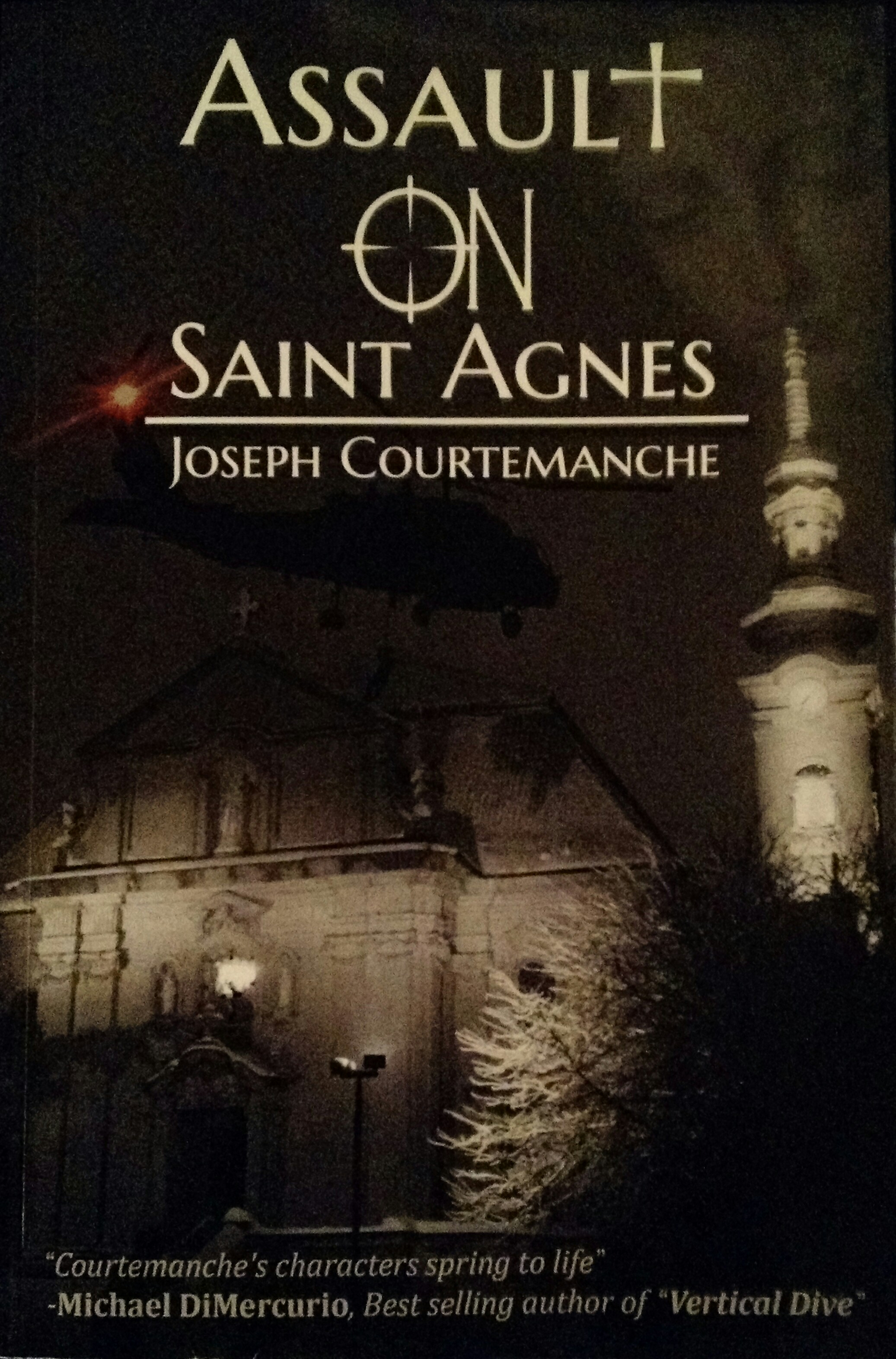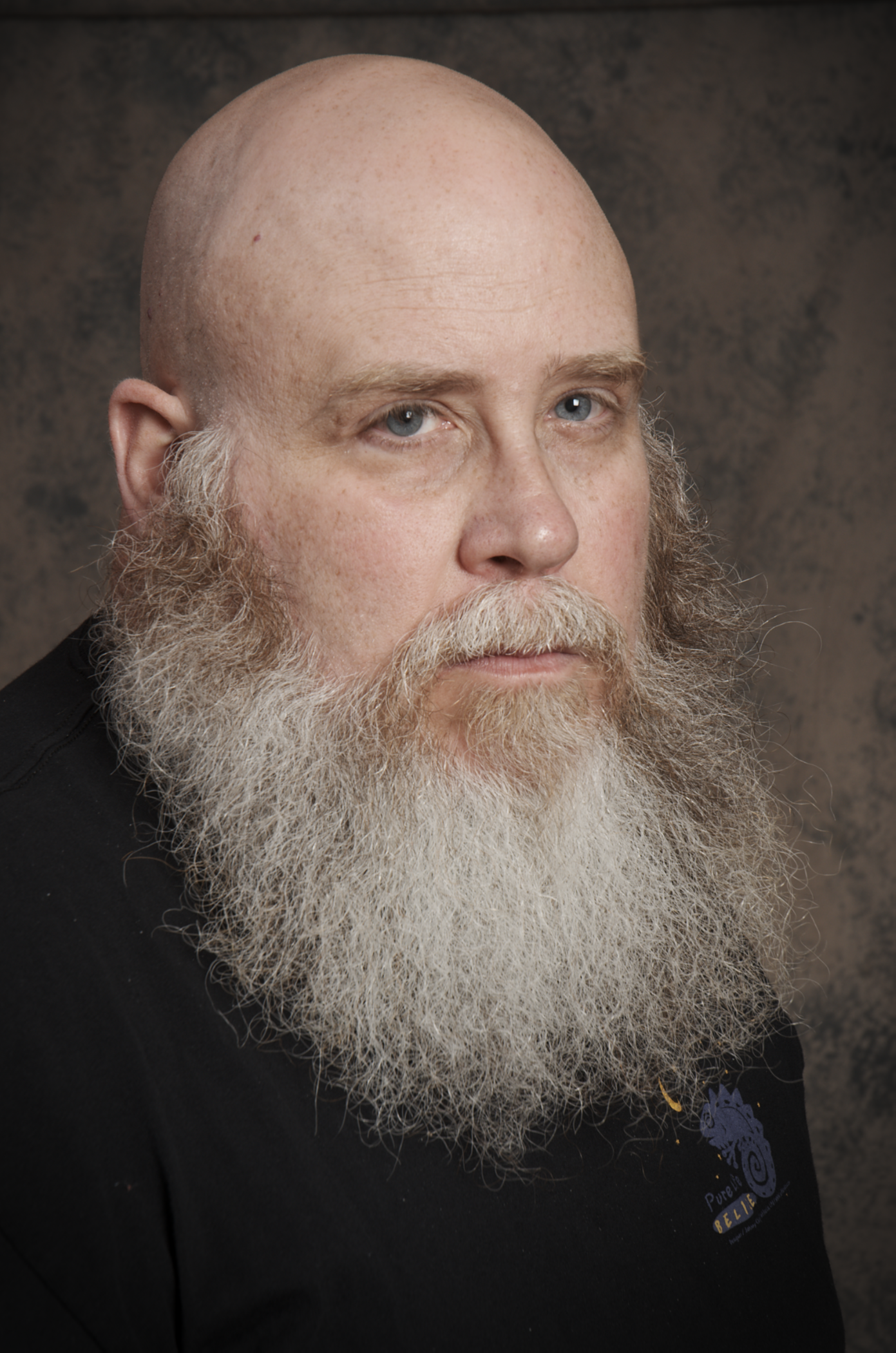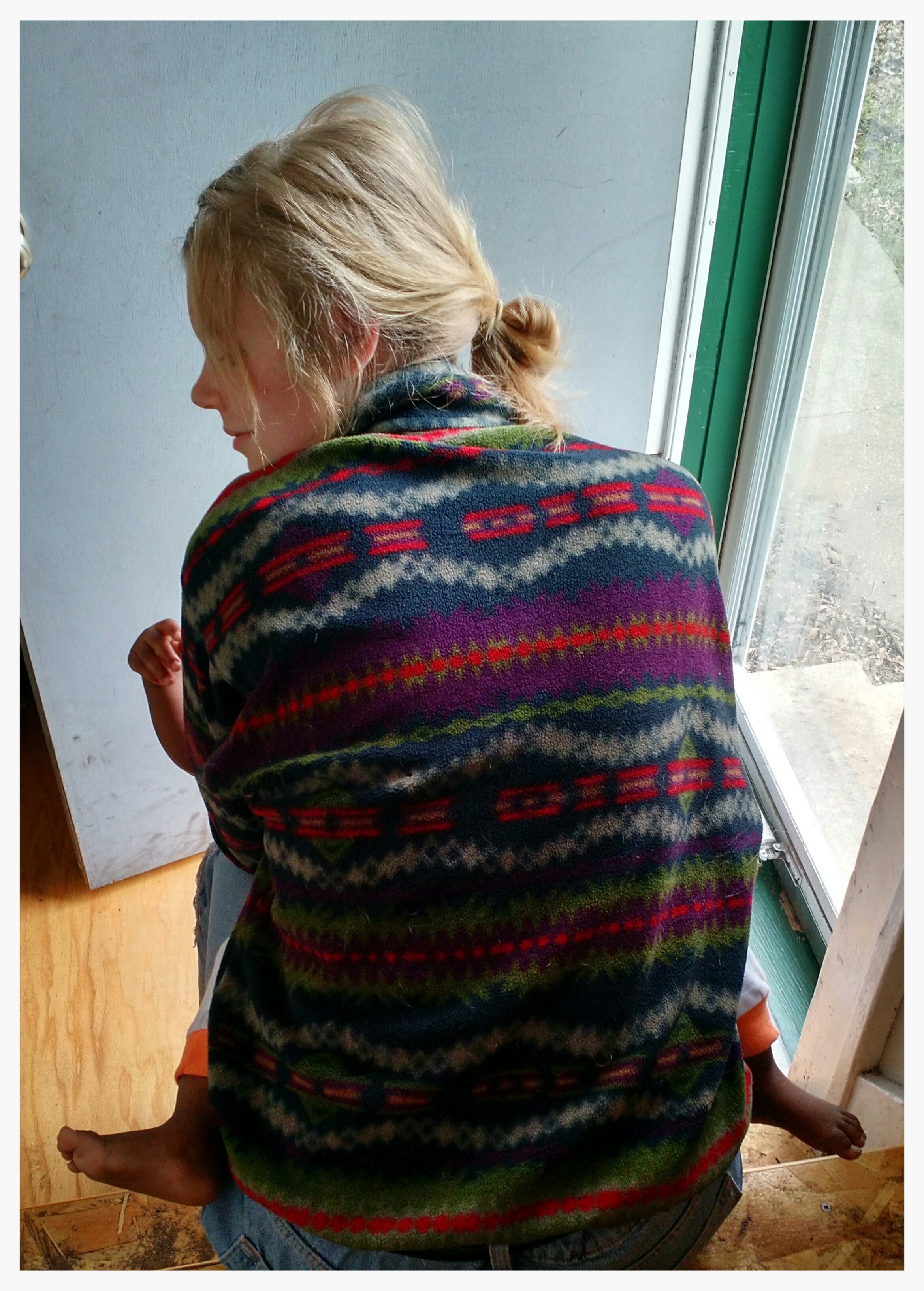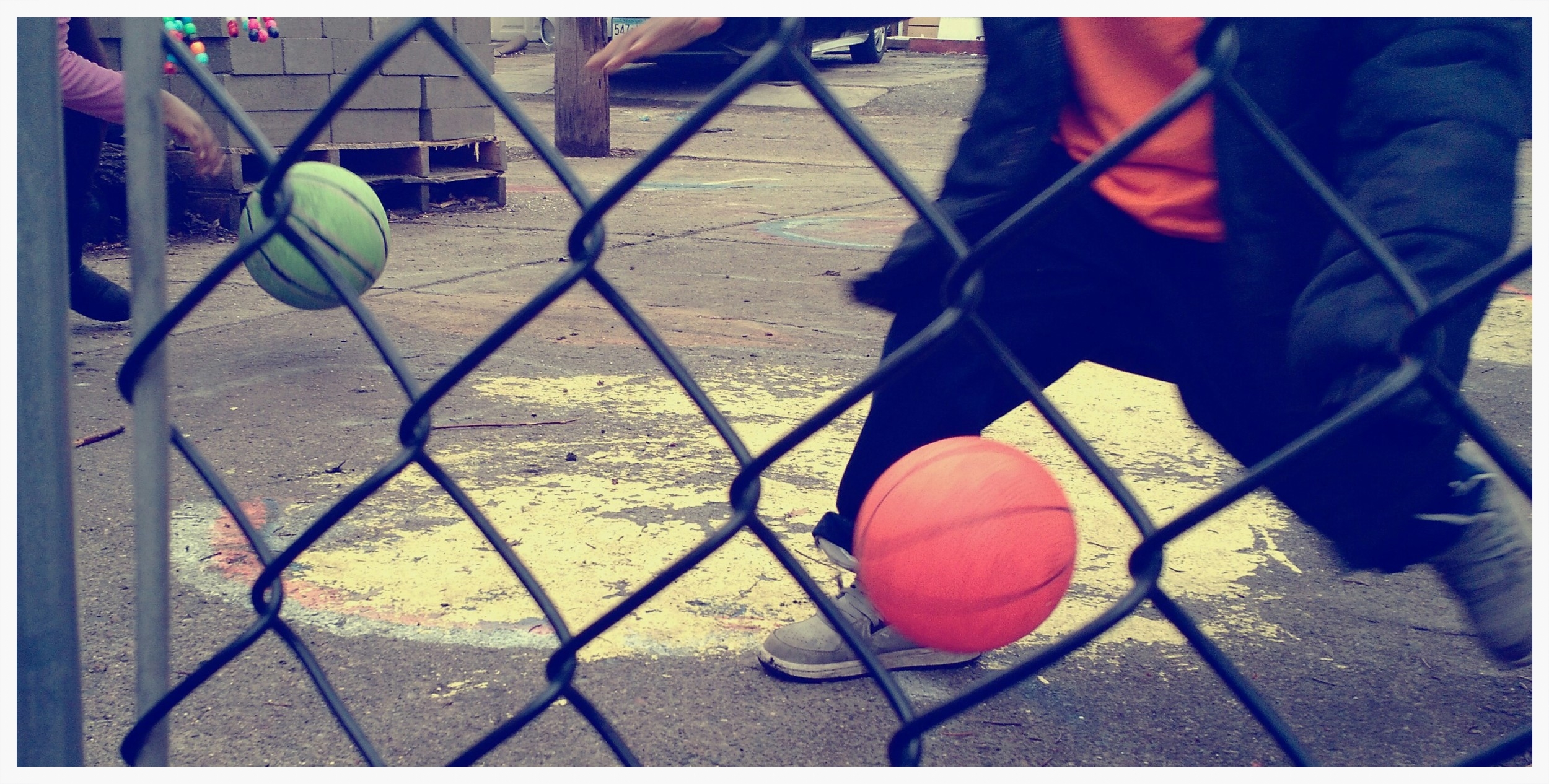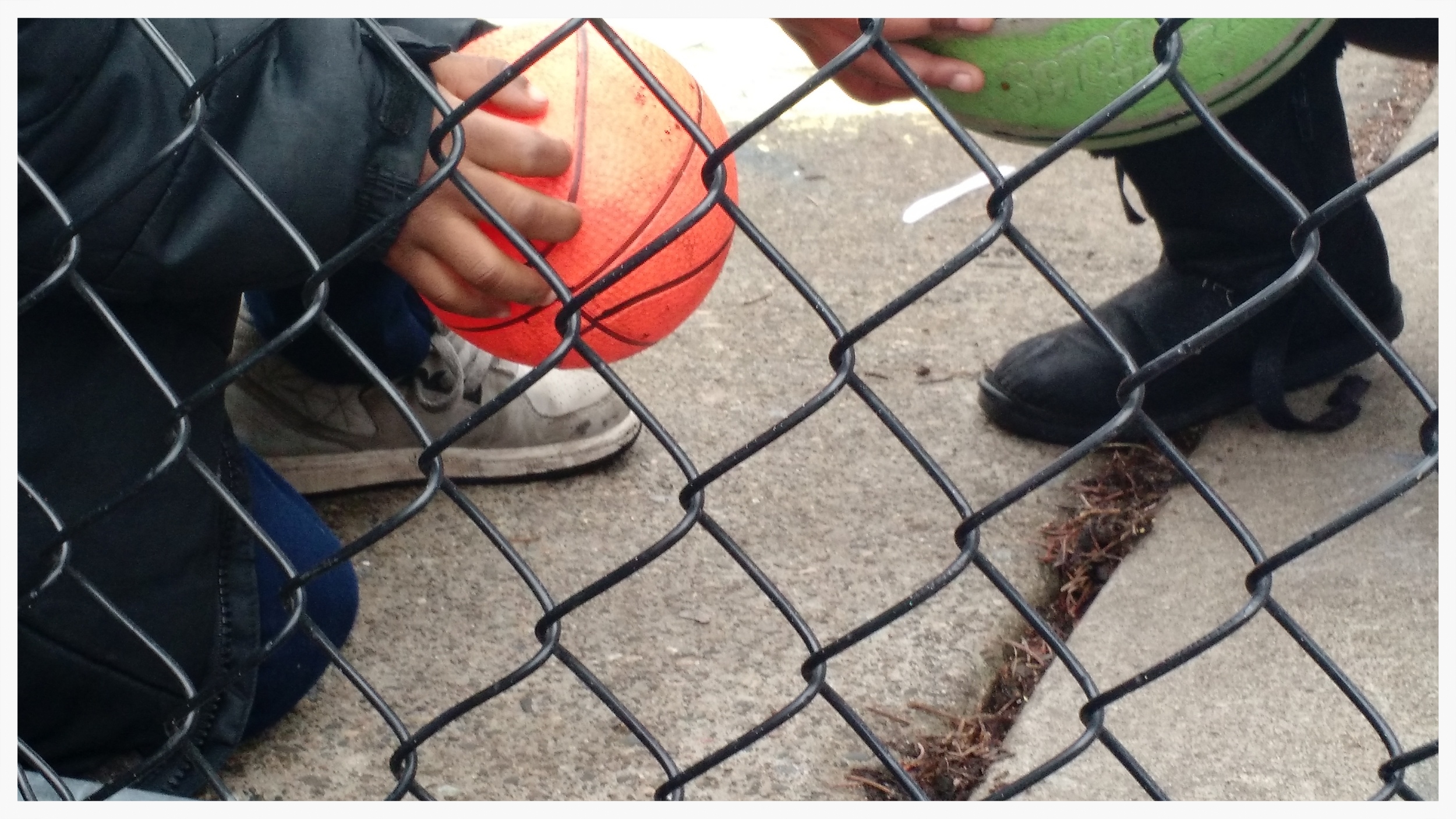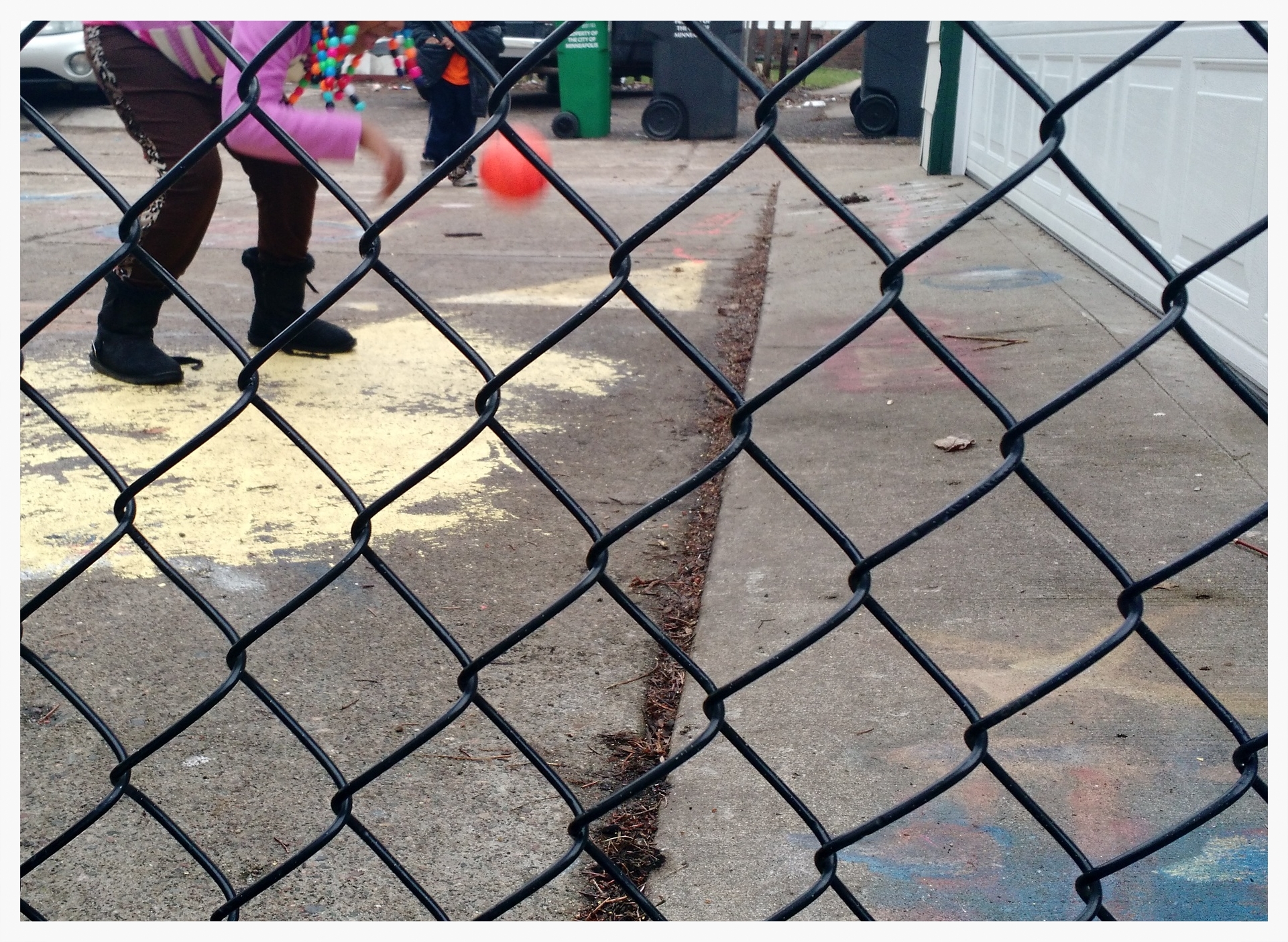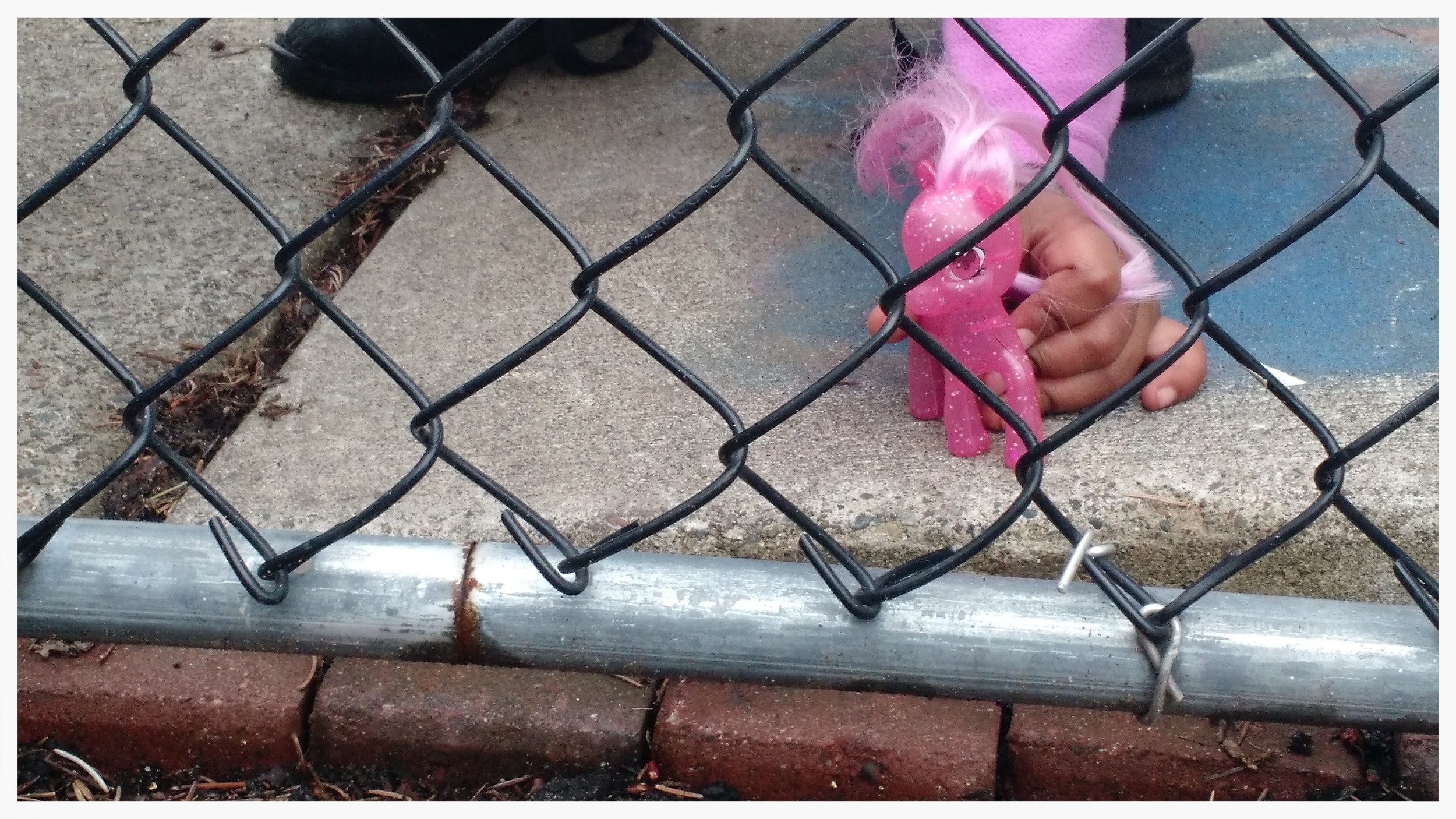I gripped the door handle; I could be faster than a four-year-old if I had to be.
A boom car zipped by us. The noise snatched the little boy’s attention from his task.
I knocked on the window. “Hit the button again, Jamal.”
More clicks, but not the right ones. Let the next one be it. He pressed again. The knob popped up, unlocking the car. In a fraction of a second, I opened the door. Jamal abandoned the keys and scrambled into his booster seat in the back. He tugged at the seat belt. I pulled it into place and clasped it for him, and then we drove off.
The harrowing adventure had spanned five minutes, and the story had concluded with the best of all possible endings. I adjusted the rearview mirror and looked at my passenger.
He gazed out the window and then at me. “Can I have candy now?”
The last thing an active boy needed was sugar, but I had given my word. “You sure can.”
Each weekday morning, my girls helped me awaken Jamal for preschool. We dressed him, fed him, and walked him to the bus stop at the end of our block. His groggy start to the day turned more vibrant with each step. And before the bus arrived, he entertained us with his knock-knock jokes and dance moves.
One morning while we waited at the corner, Jamal danced his fastest for us. Then the bus pulled up with a hiss, and the door screeched open. His smile vanished.
“No, no, NO!” Jamal’s feet stuck to the pavement.
“C’mon, buddy.” I lifted him up to the bus steps. “You had a good time yesterday.”
“No!” He kicked one foot up on each side of the open bus door and locked his knees.
“It’ll be fun, Jamal,” I said, still holding him under his arms. “You’ll come back to me soon.”
He braced himself against the door. The girls and I coaxed him with ideas of all the fun he might have at school.
“I gotta go, ma’am,” said the bus driver. “Can’t wait any longer.”
I stepped back and set the little boy down. “Okay, Jamal. You can stay with me today.”
The driver closed the door and drove away. The girls’ eyes widened as we all walked back to the house.
Fresh awareness lit Ricka’s face. “You mean you can do that?”
“What?” I said.
“Refuse to go to school like that.” Flicka’s words were slow, thoughtful. A smile crept onto her face. “I didn’t know it was possible.”
I cocked my head. “Don’t even think about it, girls.”
“The dad’s home!” Jamal hollered to me one day as Husband pulled up in front of the house. The dad.
I straightened shoes by the door. “Maybe he’ll play basketball with you again.”
The boy buzzed out to Husband—emerging from his truck—and from the window, I watched him bob in front of my man, tugging on his arm. The two of them came inside the house, and minutes later, they headed to the back yard to play basketball. I stepped outside to snap some pictures of their game.
Jamal dribbled the ball, then zinged a look at his opponent and laughed. “I’m gonna beat the black outta you!” He stepped closer to the basket, squinted at his target, poked out his tongue, and shot. The ball swished through the net.
Husband chased after the boy, stole the ball, and pulled out his jab steps, pump fakes, and dribble drives. Soon, the kid’s moves slowed. “A tired puppy is a happy puppy,” I remembered our dog trainer Mimi saying.
Back in the house thirty minutes later, Jamal splayed out on the living room floor. Then he crawled over to where Husband sat, climbed into his lap, looped an arm around his neck, and tussled Husband’s naturally curly hair. “You’re a nappy head too.”
A smile played at the corners of my man’s mouth. “You think so?”
“Yeah.” He pressed his forehead into Husband’s. “Just like me, Dad.”
Thirteen days with us, and then Jamal was gone. The day he left, I chatted with the host mom who had taken in his five-year-old brother. I had gotten to know her during the little boys’ play dates.
“So how did it go?” she asked as she stood on my front porch.
I pictured Jamal, a busy boy—amped up even more by his nebulizer treatments. I remembered his shining face, peering at me through the car window; his obsession with yogurt and basketball; his affinity for our whole family—but especially for Husband. I recalled the smell of the Moroccan hair oil I’d rub on his head after his baths, how he slept hard and long after his active days, and how he relished eating chicken skin—dragged through ketchup—more than the chicken itself. I had learned an adult should never relinquish control of her keys to a four-year-old, and once in a while, everyone deserves a personal day away from the demands of life and preschool. I had also learned that this kind of hosting would leave its mark—deep grooves in our lives that would never heal—but we’d do it again anyway.
The look on the woman’s face mirrored what I felt. I drew a deep breath, and let it go. “It was good.”
*Miss an installment of the blog? Or want to catch the story from the beginning? Visit http://www.tamarajorell.com/blog-entries-by-date
*Names in this blog have been changed to protect my family, neighbors, and friends in the neighborhood, and in a nod of appreciation to the beloved Swedish author Maj Lindman, I’ve renamed my three blondies Flicka, Ricka, and Dicka.


